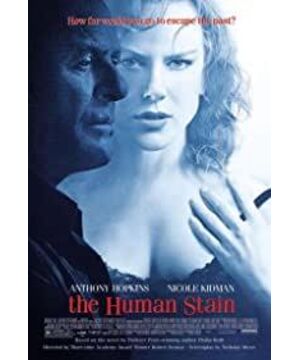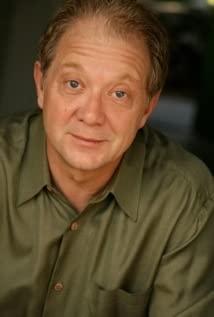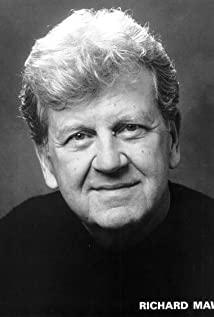The old man, whose name was Coleman, was considered by academia to be a well-known professor of Jewish classics who taught at Athena University. After that oppressive opening came Coleman's class, where he focused on love in his retelling of Homer's Achilles. When questioned, he found two students were absent again, whom he called spook because it seemed "never existed". But because of that word, he lost his university job. Spook is generally interpreted as "ghost, ghost" in English. However, as others pointed out during the college meeting, the word also has another meaning, which means "black ghost" in slang. It happened that the students he accused were African Americans, so he accused of being racist. After he brought the bad news to his wife, his wife died of a massive cerebral thrombosis in the midst of grief and anger. Feeling that his entire life was ruined by this false accusation, Coleman sought out Zuckerman, a writer living in seclusion in the countryside, hoping that the latter would write a novel based on it to tell the public. Although Zuckerman did not agree to this request at the first time, but with the development of the story later, it has become a great novel that can't be put down.
Some film critics believe that the climax of the story, that is, the place where the truth is revealed, is at the end of the film, but I don’t think the director feels it necessary to make a mystery. The story itself is exciting enough, so we can already get the answer when Coleman was a teenager. He was good at boxing when he was young, and was invincible. His coach won him a chance to get a sports scholarship, but it is not difficult to understand that he was asked to conceal that he was "colored". Coleman's father, a very gentleman and noble black man at the dinner table, worked as a waiter in the dining car. His mother is a nurse and his brother is a soldier. His father had asked him to be a good doctor, but he ultimately chose to set himself up as white when filling out a form to join the Navy. He meets the woman he nearly married, but chooses to leave after meeting his black mother. This made Coleman determined to set himself up as white, even to the point of never interacting with his family again in exchange for the freedoms that come with being a white man. And in fact, he's carried a lifelong lie about it that he can't have children, lest they're not as naturally white as he is, nor can he justify his ridiculous accusations of racism. This is the most memorable main line of the whole film. In comparison, his relationship with Fonia is much inferior.
Fonia was a vulgar and beautiful woman in her mid-forties who worked at the post office, ranch and school at the same time. Her husband was a horrific possibly mentally ill man, her children were killed in a fire, she lived with their ashes, her father was rich but never gave her anything, she was even once killed by her Stepfather rape. A life that was too bad made Fonia unwilling to expose her vulnerability in front of others even though she was heartbroken. When she looked at the ashes of her children and said "leave me" to Coleman, everyone could read her heart. the sound of. They were each other's sanctuary, and eventually left the life that left them unhappy together.
The third line in the film is Zuckerman, whom Coleman later became friends with, teaching him to dance and play cards. He plays the role that Phonia is incapable of, living rationally by Coleman's side, listening to his story, and finally uncovering the mystery when he meets Coleman's black sister in the cemetery. He once won a very authoritative literary award for a novel, and his subsequent exhaustion of talent made him willing to live in seclusion in the countryside, but the appearance and disappearance of Coleman gave him a new motivation for writing.
This film is based on the famous American writer Philip Rose's new book "The Stain of Human Nature", which caused a sensation in the United States when it was just published in the early summer of 2002. But the racial overtones and some depictions of sex are believed to be the reasons why the book ultimately missed the Nobel Prize. Oscar winner Anthony Hopkins and Oscar winner Nicole Kidman star in the film, "Prison Break" actor Miller plays Coleman's teenage years, and the director of the film is Oscar regular Robert Benton. Star halo, acting, critical director vision and excellent script, all the fusion doomed the success of this film. Perhaps the most interesting is the title. I specifically checked the dictionary. In fact, there are many ways to translate taint in English, but stain contains a layer of meaning that directly refers to the connotation of the film, "the taint of reputation". Yep, the unknown stain on Coleman, who has been praised throughout his life. This stain also manifests itself in other people in the film, those who sanctimoniously accuse Coleman, and the black professors who were helped by him but not in the end and had to confess at the funeral.
View more about The Human Stain reviews











